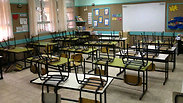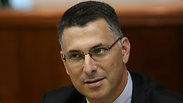

What do Shinui (2003), the Pensioners' Party (2006), Yesh Atid (2013) and Kulanu (2015) have in common? They are all "state-of-mind parties," veteran political forces will say. These parties which emerge every election campaign do change, but the state of mind is pretty stable: Dissatisfaction.
The governments were able to provide successful or less successful tactical responses to the different storms in the public opinion. There were and are ministers who did their best and led important and significant reforms within their ministries. But comprehensive and ambitious strategic moves, whose purpose is to upgrade Israel's social strength, have not been implemented. They are not on the agenda today either.
Contradicting reports surround the Locker Committee's report, which has yet to be exposed to the public. On the one hand, according to some of these reports, the committee will recommend a perennial budget, as well as increasing the basis of the budget to NIS 58 billion (about $15 billion). On the other hand, there are voices of dissatisfaction coming from the defense establishment.

Theoretically, the suggested moves will increase the gap between the defense establishment and the civil systems. The defense establishment already enjoys privileges which the education or health systems can only dream of. The Defense Ministry budget, for example, is only a recommendation. The actual expense is always billions of shekels more than the approved budget. In retrospect, budgetary resources are always found to complete what is missing.
Israel's security challenges and needs have been huge since its establishment and still are. Even if the entire state budget is devoted to security, it is unlikely that these challenges will be fully addressed. But not every increase in the defense budget will lead to more security. Investing in education, science, research and higher education and in reducing social gaps is as important for Israel's national security as an ongoing increase in the defense budget - if not more important.
While I sat around the cabinet table, I raised the following simple question more than once: Why does the defense establishment need an anchor of perennial budget more than the education system?
A necessary condition for meeting Israel's national security challenges is maintaining Israel's qualitative advantages, as well as an economy free of radical populism and with global competitiveness and a strong, advanced and more just society. The ability to deal with these challenges actually depends on the performance of the civil ministries.
Since we can't have it both ways in real life, and since we live in a world of limited resources, a decision must be made. Without acknowledging the need to restrain the increase in the defense budget, we will be unable to meet the national security challenges in their broader sense. Israel may fail in achieving the objectives which it has a relatively high ability of achieving, and which depends on us more than on external variables.
The political system's test will arrive soon with the 2015-2016 budget. If it misses this opportunity, it may wake up to a larger public and political earthquake than the previous ones.
Gideon Sa'ar served as education minister and interior minister in Israel's two previous governments and is currently a distinguished senior fellow at the Institution for National Security Studies (INSS).
















